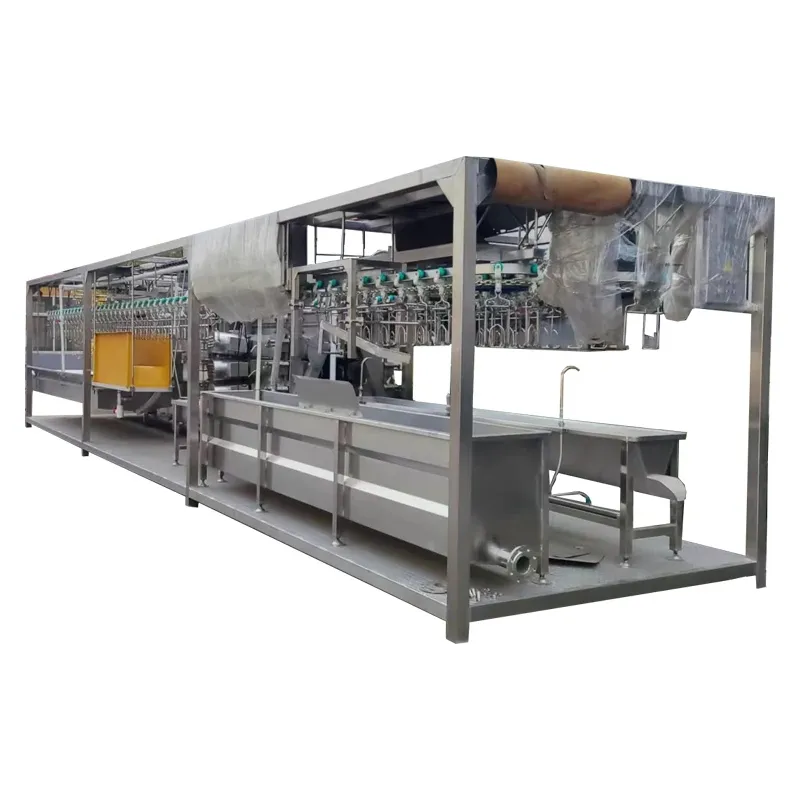Animal Feed Pellet Production Equipment for Efficient Livestock Nutrition
Nov . 16, 2024 14:50 Back to list
Animal Feed Pellet Production Equipment for Efficient Livestock Nutrition
The Importance of Animal Feed Pellet Making Machines
In the modern agricultural landscape, the efficiency of livestock production hinges significantly on the quality and formulation of animal feed. Animal feed pellet making machines have emerged as pivotal tools in this industry, offering numerous benefits that enhance both production efficiency and animal health.
Pellets are compact, uniform, and easy-to-handle forms of animal feed created by combining various ingredients such as grains, vitamins, minerals, and protein sources. The process involves grinding these ingredients into a fine powder, mixing them to form a homogenous blend, and then compressing the mixture through a pellet die to create small, dense balls. The use of pellet making machines streamlines this process, significantly reducing labor costs and time while maximizing output.
One of the primary advantages of using pelletized feed is the enhanced nutritional value it provides. The pelleting process often includes steam treatment, which not only kills harmful pathogens but also improves the digestibility of the feed. As a result, livestock can absorb nutrients more efficiently, leading to better growth rates, improved feed conversion ratios, and overall enhanced health. This efficiency becomes increasingly important in a world where the demand for animal protein is rising exponentially.
animal feed pellet making machines

Furthermore, feed pellets reduce wastage. Traditional loose feed can result in significant losses due to spillage and selection by animals; they often pick and choose their preferred ingredients, leading to an unbalanced diet. Pellets, being uniform and compact, minimize these issues, ensuring that animals receive a complete and balanced diet every time they eat.
The versatility of animal feed pellet making machines also allows farmers and producers to customize their feeds according to the specific needs of their livestock
. Different species and stages of growth require different nutritional profiles, and with the right equipment, producers can formulate specialized feeds that promote health and productivity tailored to their particular operations.Additionally, the growth in demand for organic and non-GMO feed has led to advancements in pellet-making technology. Modern machines are capable of processing a variety of materials, allowing producers to meet these specialized requirements more effectively.
In conclusion, animal feed pellet making machines play a crucial role in enhancing livestock production efficiency, improving animal health, and meeting the increasing global demand for quality animal protein. As technology continues to evolve, the future of feed production looks promising, paving the way for more sustainable and efficient practices in the agricultural sector. With the right equipment and practices, farmers can ensure that they are not only feeding animals effectively but also supporting the health of the planet.
-
Automatic Feeding Line System-Pan Feeder Nipple Drinker|Anping County Yize Metal Products Co., Ltd.
NewsJul.29,2025
-
Hot Sale 24 & 18 Door Rabbit Cages - Premium Breeding Solutions
NewsJul.25,2025
-
Automatic Feeding Line System Pan Feeder Nipple Drinker - Anping County Yize Metal Products Co., Ltd.
NewsJul.21,2025
-
Automatic Feeding Line System Pan Feeder Nipple Drinker - Anping County Yize Metal Products Co., Ltd.
NewsJul.21,2025
-
Automatic Feeding Line System - Anping Yize | Precision & Nipple
NewsJul.21,2025
-
Automatic Feeding Line System - Anping Yize | Precision & Nipple
NewsJul.21,2025






